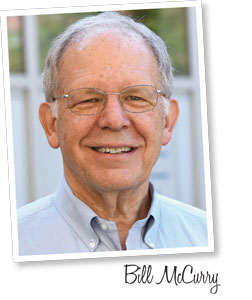4/1/2021
The Fine Art of Decision-Making
Bill McCurry

In 1672, the French author Molière said, “A learned fool is more foolish than an ignorant one.”
This is often demonstrated in the realm of art fraud. In Malcom Gladwell’s book “Blink,” he tells of the $9 million fake displayed for years in the J. Paul Getty Museum. A statue of a young Greek boy was identified in the 1980s as an ancient artifact, despite the fact it looked “fresh.” The experts wanted it to be an archeological treasure despite signs that pointed to fraud. After decades, the experts admitted they were wrong and the expensive fake went into storage to be seen only by appointment.
What’s the relevance of instances like these to garden center decision-making? Humans have the uncanny ability let our own desires impact our decisions and projections of the way certain actions will play out. As experts in the horticultural business, are we making “informed decisions” or merely patronizing our own biases?
Guy Mayraz summarized his findings in a May 2013 paper for the University of Melbourne: “People exhibit wishful thinking if they are more likely to believe something is true simply because they are better off if it is. This has many important implications: risks (bad) are systematically underestimated, while uncertain rewards (good) are overestimated. Overconfidence can follow. Since success is desirable and failure isn’t, both parties to a conflict believe they are right and that victory would be theirs.”
Mayraz split a group of students into two groups—those he assigned the role of bakers and those he assigned to the role of wheat farmers. He showed them historical wheat prices and offered monetary rewards to the group that could project the closest future price of wheat. The imagined bakers knew cheaper wheat would lower their cost, while those who were acting as farmers knew higher prices would be more beneficial to them. The only real-life economic gain for these students would be an accurate forecast (or guess?) at future wheat-pricing. Regardless, farmers made significantly higher predictions than bakers, proving the shift in “rational” thinking based on one’s self-interest.
Since 2013 another factor has to be considered. We believe we know the right answer because the media we’ve chosen agrees with us. In July 2020, this column showed data predicting consumer attitudes about the pandemic and the return to retail shopping solely based on the news media outlet they chose. The underlying message was that today’s society will choose media that agrees with them.
Fewer people seek alternative opinions. We believe we’re correct in our beliefs and we surround ourselves with sources that feed our existing beliefs. We avoid those who challenge our beliefs or want us to objectively evaluate facts. While dangerous to a democratic society, it’s fatal to business decisions.
Many experts tell us to use the Ben Franklin Decision Making Tool. Divide a sheet of paper and list PROs on one side and CONs on the other. Those who favor “gut decisions” like to flip a coin. However, when the coin comes up heads, how do you feel? If you find yourself saying, “Let’s flip two out of three,” you know your true gut reaction.
Dozens of decisions are made daily. Don’t obsess over the simple ones. Determine which decisions are critical and focus your efforts on those. Seek out viewpoints from associates who may not always agree with you. A wise man said, “When two of my advisors agree, one of them isn’t needed.” Don’t surround yourself with yea-sayers; find people who challenge your biases. More important, learn to challenge yourself. What preconceived ideas do you bring to decision-making that hamper your ability to make the best choices?
Consider each significant decision as if you’re new to the concept. Don’t accept yourself as the expert. Examine your perceptions, your focus and your outcomes from all sides. You’ll be smarter than the “experts” who blindly charge forth and get it wrong. GP
Bill would love to hear from you with questions, comments or ideas for future columns. Please contact him at wmccurry@mccurryassoc.com or (609) 688-1169.